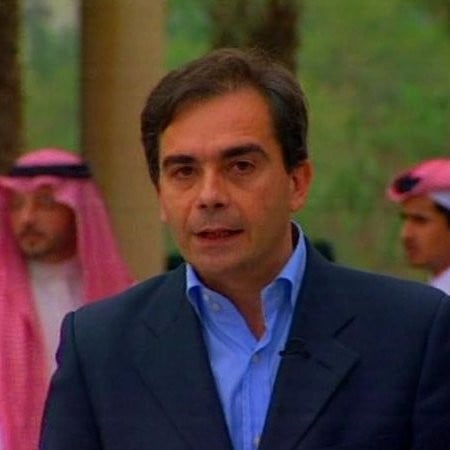MEF’s Riccardo Amati shares his take on the week’s mobile and tech stories from around the world. Headlines include… Huawei Tops China Smartphone Market Again, Fuelled by AI Chips and Bold Designs, Apple Strikes $500M Rare Earth Deal to Secure U.S. Magnet Supply for iPhones, Smartphone Sales Stall at 1% as Tariffs Hit Budget Buyers, AI Drives Premium Push — IDC and much more… Alternatively listen On MEF Radio.

Huawei Tops China Smartphone Market Again, Fuelled by AI Chips and Bold Designs
Huawei has reclaimed the top spot in China’s smartphone market for the first time in over four years, grabbing an 18% share in the June quarter as rivals like Vivo and Oppo slipped.
The comeback, powered by in-house AI chips and a Google-free OS, helped Huawei shine even as total smartphone shipments in China fell 4% to 69 million units.
Despite a tough economy and less government subsidies, Huawei’s double-fold phones and bold design bets are paying off.
Huawei didn’t just survive the sanctions — it folded them into its strategy.

Apple Strikes $500M Rare Earth Deal to Secure U.S. Magnet Supply for iPhones
Apple inked a $500 million deal with MP Materials to source rare earth magnets from inside the U.S., reinforcing its supply chain amid rising trade risks and political pressure to shift away from China.
This is part of Apple’s sweeping $500 billion U.S. investment plan, and includes building Neodymium magnet lines in Texas — magnets that go into iPhones, Macs, and more — plus a new California recycling facility for repurposing rare earths from old electronics.

Smartphone Sales Stall at 1% as Tariffs Hit Budget Buyers, AI Drives Premium Push — IDC
Global smartphone shipments grew just 1% in Q2 2025 to 295.2 million units, slowing from 1.5% growth in Q1, as economic uncertainty tied to U.S. tariffs dampened buyer spending—especially on low-end devices.
According to IDC data, demand in China fell despite subsidies, with Apple shipments declining 1%. Consumers are prioritizing spending less on smartphones, particularly in the budget segment.
To offset slowing unit sales, manufacturers are pushing higher-priced models with AI features in more affordable devices.
Anthony Scarsella of IDC called the 1% growth “a critical indicator” that the market remains poised for a recovery despite geopolitical and tariff challenges.

Gates Touts Mobile Money Gains as Key to Closing Global Banking Gap
Bill Gates, chair of the Gates Foundation, highlighted connectivity’s vital role in advancing financial inclusion, citing the World Bank’s Global Findex 2025 report.
The report showed a rise in adults in low- and middle-income countries using mobile money to save—from 5% in 2021 to 10% in 2024.
Overall, 40% of adults in these countries saved using financial accounts, boosted by mobile technology expanding access to digital payments and services.
Despite progress, 1.3 billion people remain unbanked, many owning mobile devices that could help bridge the gap if security challenges like low password use are addressed.
Mobile financial services also helped reduce the gender gap in account ownership, promoting greater inclusion.

Nvidia Gets Green Light to Sell H20 Chips in China, Reclaiming $15B AI Market
Nvidia is resuming sales of its H20 AI chip to China—after a sharp U.S. policy reversal that could unlock billions in revenue and reshape the mobile AI race. Washington has now signaled it will approve export licenses for the H20, after months of bans aimed at curbing Beijing’s tech rise.
The move reignites a market Nvidia had largely written off—potentially recovering up to $15 billion in lost data center sales. For China’s booming AI sector, from DeepSeek to Alibaba, it means renewed access to vital U.S. hardware to power mobile, cloud, and generative AI platforms.
Nvidia’s share price jumped, Chinese tech stocks surged, and CEO Jensen Huang—now in Beijing—called it a breakthrough for both commerce and diplomacy. The green light follows an unofficial trade thaw, including China easing rare earths exports in return.

Nvidia’s Huang Hails China’s AI — and Preps Billion-Dollar Chip Comeback
Nvidia CEO Jensen Huang praised China’s AI research during his Beijing visit, highlighting open-source models like DeepSeek, Alibaba, Tencent, MiniMax, and Baidu Ernie Bot as world-class contributions accelerating the global AI revolution.
Huang emphasized China’s leadership in AI paper publications and described their models as catalysts for industry-wide innovation.
The trip coincides with the U.S. reversing export restrictions, enabling Nvidia to soon ship its high-performance H20 AI chips to China, potentially adding billions in revenue and restoring a critical supply link in the global semiconductor and AI ecosystem.

Trump’s AI Plan: Cut Rules, Boost Power, Dominate Globally
Donald Trump is gearing up to unveil his AI Action Plan — a sweeping set of guidelines that promises to loosen federal rules on artificial intelligence and ramp up energy access for the data centers powering it — Bloomberg Rreports citing people familiar with the matter.
The plan is short on sweeping reforms but long on executive orders, all designed to supercharge U.S. AI dominance.
The coming policy will champion global AI partnerships, push Congress to block state-by-state regulation, and promote U.S. exports of AI tech — even using agencies like the Ex-Im Bank to help flood global markets.
Meanwhile, the White House wants environmental permitting streamlined to fast-track new infrastructure.
At its core, the plan’s message is clear: less red tape, more power, and full-speed ahead for American AI, especially from giants like Meta, OpenAI, and Google. Critics worry it’s industry-first, safety-later — but Trump’s team is betting that speed wins the race.

SoftBank and OpenAI Bet Big: Infinite AI, Infinite Demand
Masayoshi Son and Sam Altman say the world can’t get enough AI—and they’re doubling down.
Speaking at SoftBank World, the SoftBank founder and OpenAI CEO agreed demand is skyrocketing as costs drop, making it crucial to massively scale compute.
Son plans to deploy one billion AI agents across his group this year and create a new operating system just for them.
SoftBank also aims to invest up to $30 billion in OpenAI, deepening a joint venture that’s already delivering enterprise AI tools across Japan’s top industries.
Altman sees robots building robots, Son sees software teaching itself. Their bet? More AI means more demand, forever.

Meta Execs Dodge Trial in Quiet $8B Privacy Suit Settlementghten
Mark Zuckerberg and top Meta executives have quietly settled an $8 billion lawsuit that accused them of losing the company billions by mishandling user privacy.
The suit, brought by shareholders, aimed to make leaders — not Meta — pay for fines like the $5 billion Facebook shelled out to the FTC over the Cambridge Analytica scandal.
The Delaware trial ended abruptly on day two, just before venture capitalist and Meta board member Marc Andreessen was set to testify. Zuckerberg and Sheryl Sandberg were expected later, but now they’ll dodge the spotlight — again.
The case alleged Meta insiders knowingly ran Facebook as a data-harvesting machine in violation of a 2012 FTC agreement, yet the company denies wrongdoing and hasn’t commented. Critics say the settlement shields execs from real accountability.





